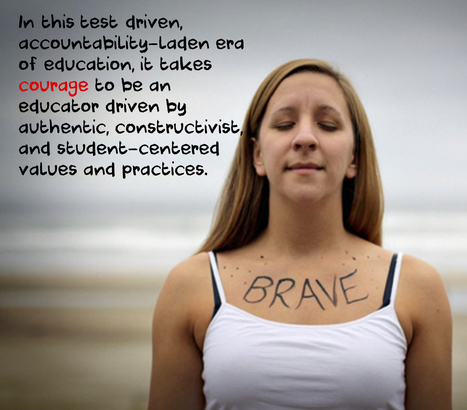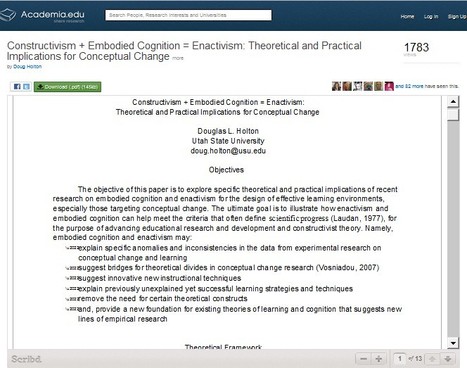Presented at the 2010 AERA Conference...
Constructivism + Embodied Cognition = Enactivism: Theoretical and Practical Implications for Conceptual Change
AERA 2010 Conference: Constructivism + Embodied Cognition = Enactivism: Theoretical and Practical Implications for Conceptual Change Douglas L. Holton
Utah State University
doug.holton@usu.edu
Objectives:
- The objective of this paper is to explore specific theoretical and practical implications of recent research on embodied cognition and enactivism for the design of effective learning environments, especially those targeting conceptual change.
-The ultimate goal is to illustrate how enactivism and embodied cognition can help meet the criteria that often define scientific progress (Laudan, 1977), for the purpose of advancing educational research and development and constructivist theory. Namely, embodied cognition and enactivism may: \u2022 explain specific anomalies and inconsistencies in the data from experimental research on conceptual change and learning \u2022 suggest bridges for theoretical divides in conceptual change research (Vosniadou, 2007) \u2022 suggest innovative new instructional techniques \u2022 explain previously unexplained yet successful learning strategies and techniques \u2022 remove the need for certain theoretical constructs \u2022 and, provide a new foundation for existing theories of learning and cognition that suggests new lines of empirical research...
Read more, very interesting...
Via
Ana Cristina Pratas



 Your new post is loading...
Your new post is loading...














Learn more:
https://gustmees.wordpress.com/2014/10/03/design-the-learning-of-your-learners-students-ideas/
https://gustmees.wordpress.com/2015/07/19/learning-path-for-professional-21st-century-learning-by-ict-practice/